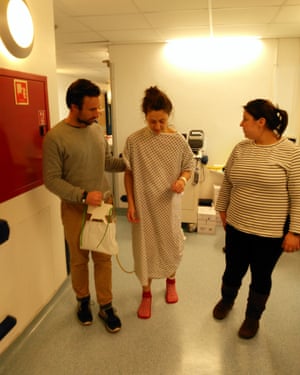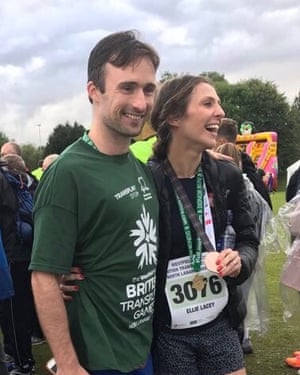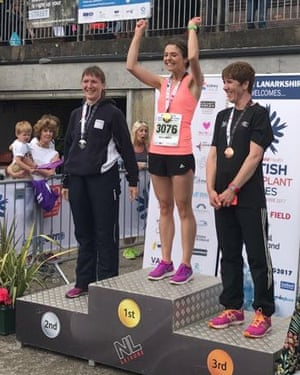“The bad news, Mrs Lacey: you are now at the top of the super-urgent liver transplant list. The good news: you’ll be eligible to compete in the British Transplant Games.”
It wasn’t exactly how the doctors put it, but it pretty much sums up my thought process. Discovering that I needed a liver transplant was more shocking than I can express. I was a fit, healthy, adventurous 30-year-old. Albeit a bright yellow one. I went from just feeling a bit tired, to having a transplant in six weeks.
The experience certainly gave me a new perspective on running. I run because I love running and everything about it, but I had never considered that it would save my life … or at least keep it ticking over long enough to be saved by the heroes in our wonderful NHS, or, as I call them, magicians.
Running got me through my unexpected and unexplained liver failure. My doctors told me that my body was strong because I ran, which gave me precious extra hours for a donor organ to be found. My recovery has been smooth (touch wood) and swift for the same reason. And my place at the British Transplant Games last month, just six months post-op, gave my stubborn mind something to aim for.

The Transplant Games are open to anybody who has received a transplant and takes immune suppressing drugs. Founded by transplant surgeon Maurice Slapack, they have been held annually in cities across the UK since 1978 and exist to promote the importance of organ donation and of keeping active after transplant. Excitingly, athletes can also qualify to represent their country at the World Games, held every two years.
I found out about the games shortly after I was told I needed a transplant. I think I needed something positive, a silver lining, and I clung on to it with fervour. One of the ladies I befriended in hospital recently told me she remembers me walking laps of the ward in my hospital gown after the op, carrying all the tubes sticking out of me and telling her I was training for the games – the lengths I’ll go to for a GB vest!
It’s fair to say I was desperate to get to the 2017 British games in North Lanarkshire, to join well over 1,000 other athletes, competing in more than 25 sporting events across four days. Even if I finished last in every race, this was the goal I needed to help me run again. But getting back to running after a major op is … hard.

My doctors were frustratingly cautious and, perhaps because my surgery was so unexpected, my brain just couldn’t comprehend how to manage my body. After coming back from the brink, I was riding a wave of gratitude and felt indestructible. Reality would hit me with a bump. Or, more accurately, with a suspected hernia, painful scar tissue, nausea, migraines or a bleeding stomach lining and plummeting iron levels … just the usual setbacks.
But I did make it to the games, and even won some medals for my trouble. No medal will ever mean as much to me as the bronze I won in my first event – the 3km road race. I wanted to get to the games and show my donor how strong she had made me. I thought of her through every moment of pain in all five of my races. When I crossed the line in the 800m, taking gold, I felt as if she had given me wings.

I know how lucky I am to be alive, to be able to run. Hearing my footsteps thud along a path is the sweetest sound. I turn off to everything else, I listen to my footsteps and I think about my donor. I hate that this happened to me, of course. But I am also aware of how much more alive I am now. Of how special every footstep is.
I was lucky because I was saved, but you are just as lucky – you probably haven’t needed saving! So here are two new reasons to run: run because you never know when your body will need to be strong; and run because you can. And if you need something to aim for, join me for my next goal in Uganda – the very special Running the Rift Marathon in November.
It goes without saying that organ donation is very close to my heart (literally). And this week is Organ Donation Week. Please consider signing up to the organ register. My donor is my hero.
Source: Read Full Article
